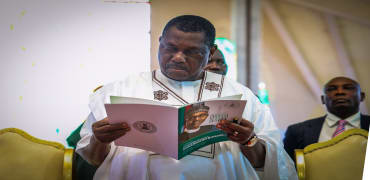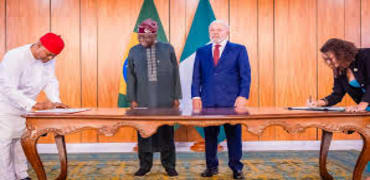Education Minister Retracts Statement, Affirms Validity of 2009 FG-ASUU Agreement
Education Minister Retracts Statement, Affirms Validity of 2009 FG-ASUU Agreement
ABUJA — In a dramatic twist that has reignited conversations around Nigeria’s perennial university funding crisis, the Minister of Education, Prof. Tunji Alausa, has admitted that the 2009 Agreement between the Federal Government and the Academic Staff Union of Universities (ASUU) remains the only binding document governing relations between both parties.
The minister’s admission came barely 24 hours after he publicly dismissed ASUU’s stance as baseless, claiming that no formal agreement had ever been signed between the two parties. His Thursday remarks in Abuja had sparked outrage within academic circles, with ASUU accusing him of attempting to “rewrite history” and delegitimize a long-standing pact that has shaped university labor relations for nearly two decades.
On Friday, however, the Ministry of Education issued a carefully worded clarification through its Director of Press and Public Relations, Boriowo Folasade, walking back the minister’s earlier comments.
“The Ministry wishes to reaffirm that the 2009 FGN-ASUU Agreement remains the last formally signed pact between the Federal Government and the Academic Staff Union of Universities,” the statement read. “When the Honourable Minister stated that there had been ‘no new signed agreement,’ he was referring specifically to the 2021 draft Nimi Briggs document, which has not been formally executed.”
A 16-Year Old Pact at the Center of Unrest
The 2009 Agreement—signed under the late President Umaru Musa Yar’Adua’s administration—outlined far-reaching commitments by government to improve funding for universities, enhance lecturers’ welfare, and revitalize infrastructure. It also established frameworks for conditions of service and academic autonomy.
Since then, the document has been at the heart of repeated disputes between ASUU and successive governments. Each cycle of disagreement has triggered prolonged strikes, leaving millions of students stranded, academic calendars disrupted, and Nigeria’s public university system chronically unstable.
Efforts to renegotiate the 2009 deal began in 2017 under then Education Minister, Mallam Adamu Adamu, but stalled repeatedly. The most notable attempt was the May 2021 draft agreement spearheaded by the Prof. Nimi Briggs-led committee, which ASUU embraced but the government refused to sign, citing financial constraints.
ASUU’s Fierce Response
Thursday’s remarks by Minister Alausa had drawn sharp condemnation from ASUU, which accused the government of “gaslighting the academic community.”
A senior ASUU official told reporters that, “The 2009 Agreement is not a figment of imagination. It was signed, sealed, and has guided every negotiation since. To suggest otherwise is an insult not only to ASUU but to the Nigerian people who have endured the fallout of government’s failure to implement it.”
By Friday’s retraction, however, ASUU appeared vindicated. Yet the union insists that acknowledgment alone is insufficient without a concrete roadmap for implementation.
Tinubu’s Balancing Act
For President Bola Tinubu’s administration, the clarification underscores a delicate balancing act: reassuring university lecturers of government’s sincerity while managing Nigeria’s strained finances. With public debt mounting and competing demands from labor unions across sectors, the federal government faces the difficult task of honoring commitments without triggering fiscal instability.
Policy analysts say the latest controversy reveals both the sensitivity and political weight of the ASUU question. “The 2009 Agreement is like a ghost that keeps haunting every administration,” noted Dr. Chris Onah, a governance expert. “Ignoring it has proven impossible, but implementing it fully has been politically and financially daunting.”
Looking Ahead
The ministry insists that its priority is keeping universities open and ensuring students are not subjected to another cycle of strikes. “The Federal Government remains committed to ending the 16-year stalemate with ASUU in a sustainable and constitutionally backed manner,” the statement emphasized.
But with ASUU signaling fresh agitation over unpaid earned allowances, salary arrears, and revitalization funds, stakeholders fear the retraction may only be a temporary salve. Unless concrete steps follow, the old tensions that have crippled Nigeria’s university system for years could soon resurface.
For now, the Tinubu administration’s u-turn has restored an important truth: the 2009 FGN-ASUU Agreement is not dead—it remains the binding reference point in Nigeria’s troubled higher education landscape.
By Haruna Yakubu Haruna


















